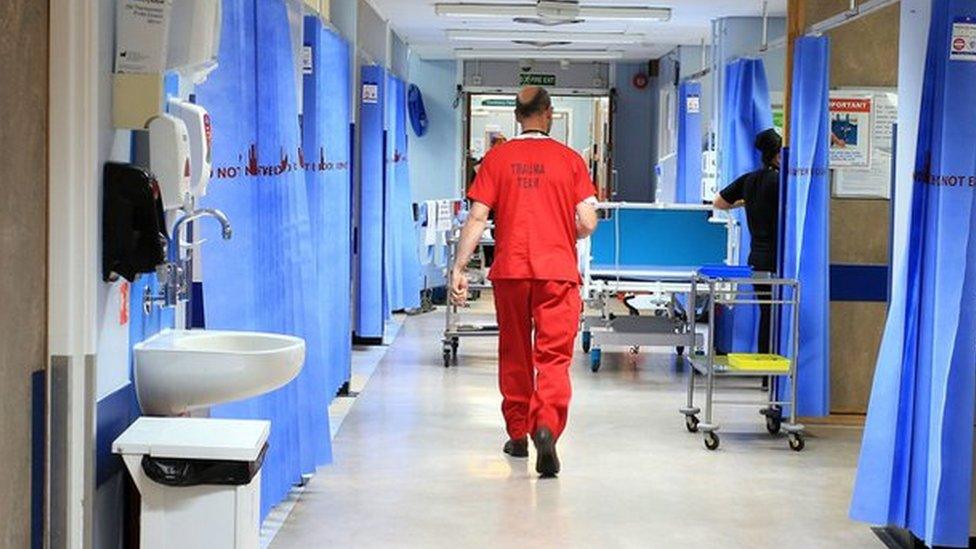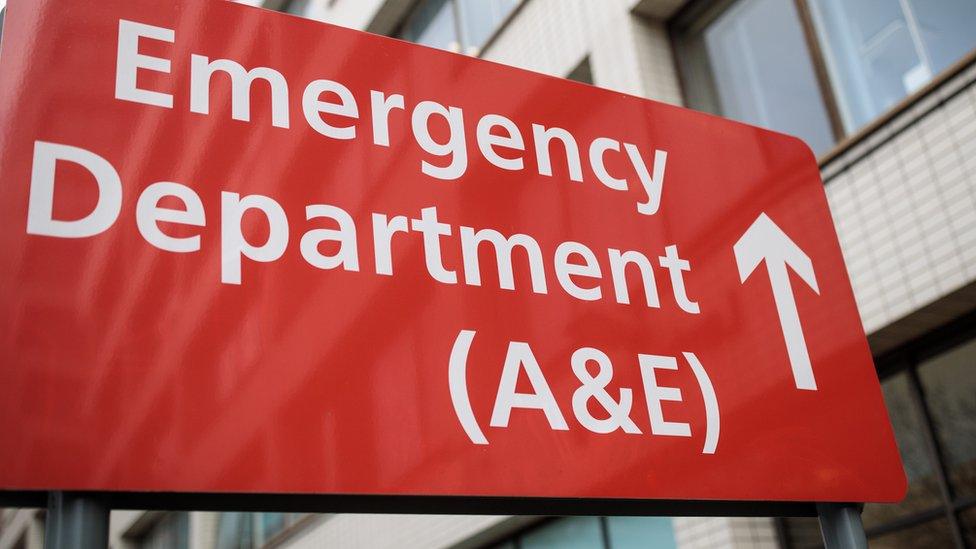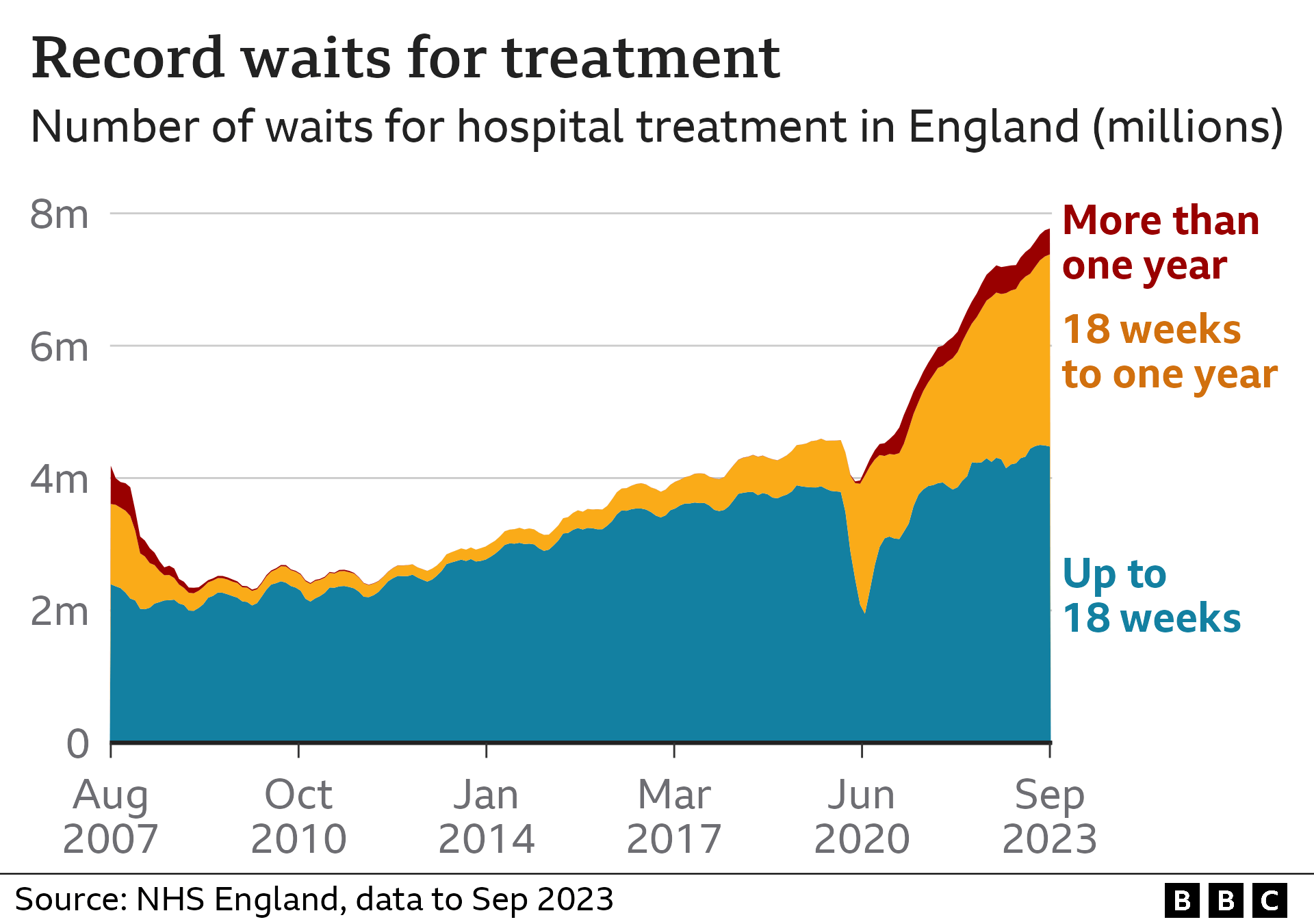NHS struggling to open extra winter beds and fill staffing gaps
- Published
- comments

Hospital bosses in England are warning a lack of funds means they are having to scale back on plans to open extra beds to cope with winter.
The warning, from NHS Providers, which represents managers, came after the Treasury rejected pleas for an extra £1bn to cover the cost of strikes.
Recruitment to plug gaps in the workforce was also having to be put on hold, NHS Providers said.
But the government said winter planning was on track.
It pointed out the goal to open 10,000 "virtual" hospitals beds had been met. This is where doctors remotely monitor patients with conditions such as respiratory and heart problems who would otherwise have to be in hospital.
Progress was also being made on opening 5,000 new permanent hospital beds - a 5% increase in numbers, the government said.
"We recognise the challenges the NHS faces over the coming months, which is why we started preparing for winter earlier than ever," a Department of Health and Social Care spokesman added.
But NHS Providers said the steps being taken may be insufficient.
Every winter, to cope with surges in demand, hospitals open extra escalation beds for short periods.
But this year, hospital bosses say, these beds are at risk. And so is staff recruitment - currently one in 10 posts is vacant.
Industrial action is estimated to have cost the health service £1bn this year.
But last week, it was confirmed the Treasury would be giving the NHS only an extra £100m to cover the cost of strikes.

The NHS has been told to find the remaining £900m through savings in others areas such as information technology (IT) and maintenance as well as using £200m of winter money.
Bosses at just over half of trusts responded to an NHS Providers' survey.
Three-quarters said they were facing a worse financial situation than last year, putting patients' safety at risk.
There was "palpable frustration" at the Treasury's unwillingness to provide extra funding, NHS Providers Chief Executive Sir Julian Hartley said. And it would be "really difficult" to reduce the number of people waiting for treatment, which the government has made a key priority.
Figures published last week showed a record 7.8 million people on the waiting list.

There was a "sense of dread" doctors would call further strikes as winter hit, Sir Julian said, with last year having seen record waits for ambulances and in accident-and-emergency departments.
Preliminary talks between the British Medical Association and Steve Barclay had begun, before he was replaced as health secretary, by Victoria Atkins, on Monday.

Are you affected by the issues raised in this story? Share your experiences by emailing haveyoursay@bbc.co.uk, external.
Please include a contact number if you are willing to speak to a BBC journalist. You can also get in touch in the following ways:
WhatsApp: +44 7756 165803
Tweet: @BBC_HaveYourSay, external
Please read our terms & conditions and privacy policy
If you are reading this page and can't see the form you will need to visit the mobile version of the BBC website to submit your question or comment or you can email us at HaveYourSay@bbc.co.uk, external. Please include your name, age and location with any submission.

Sign up for our morning newsletter and get BBC News in your inbox.
